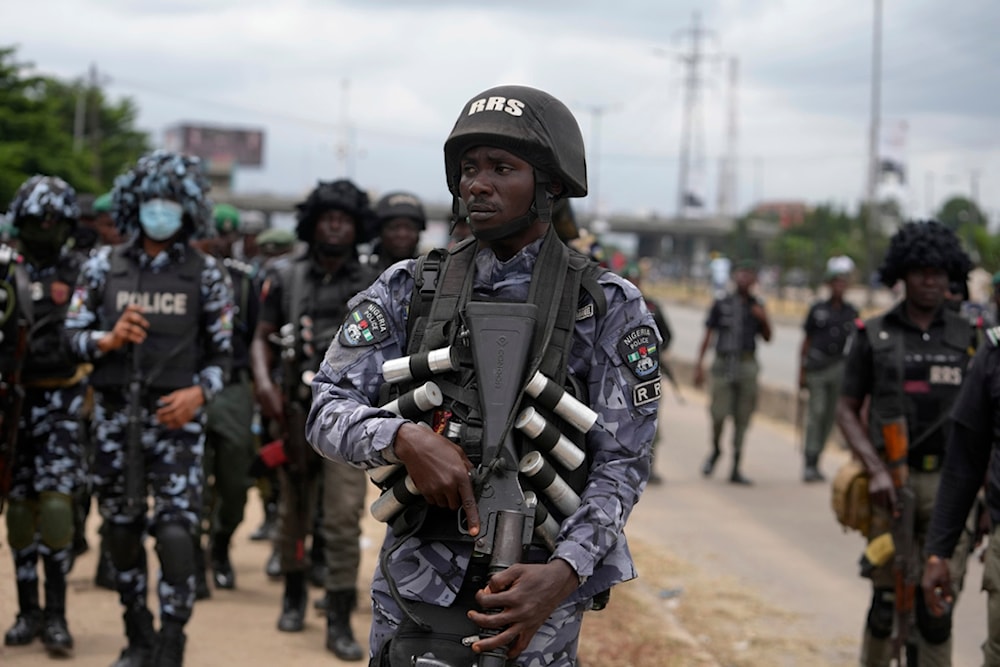Police crackdown on Nigeria protests kills 13, Amnesty says
Amnesty International has accused the Nigerian police of killing protesters amid the violent crackdown on demonstrations against the country's crumbling economy.
-

Policemen patrol during a protest against the economic hardship on the street in Lagos, Nigeria, Friday, Aug 2, 2024. (AP)
Nigerian police fired shots into the air on Friday to disperse protesters in the capital of Abuja after Amnesty International accused security forces of killing at least 13 demonstrators during nationwide protests against the country's economic challenges.
Curfews were imposed across several northern states, and a heavy security presence marked the second day of protests. In Abuja, an AFP photographer allegedly observed police firing shots over the protesters' heads, while security forces used tear gas to disband the crowds.
"We were ruthlessly dispersed, but I think that it only made us more resolute," said 29-year-old activist Damilare Adenola, leader of the Take It Back group organizing the Abuja protests. "Hunger is the greatest motivation of this protest -- that is why we are calling for the end of bad governance."
Despite warnings from authorities, Nigerian protest leaders have pledged to continue their rallies in the coming days.
Anietie Ewang, a researcher at Human Rights Watch, expressed concern over "reports of excessive use of force by Nigerian security forces" and called on authorities to heed the protesters’ demands.
Amnesty International, in a statement on X, reported that security forces killed six people in Suleja, four in Maiduguri, and three in Kaduna the previous day. "Our findings, so far, show that security personnel at the locations where lives were lost deliberately used tactics designed to kill while dealing with gatherings of people protesting hunger and deep poverty," Amnesty stated.
Police suppress Nigerian protests
Nigerian police fired tear gas on Thursday to disperse several hundred protesters rallying against the soaring cost of living in the capital city, Abuja, and in the northern city of Kano, where policy reported making hundreds of arrests nationwide, including 269 individuals accused of "destruction, looting, and instigating chaos."
In Kano, the country's second-largest city, demonstrators attempted to light bonfires outside the state governor's office. Police intervened with tear gas, forcing most protesters to retreat, according to an AFP correspondent on the scene.
Similar scenes unfolded in Abuja, where security forces also used tear gas to break up crowds in Mararaba on the city's outskirts and in the central area, as reported by an AFP journalist.
Authorities had issued warnings about potential violence, drawing parallels to recent demonstrations in Kenya that compelled the government there to revoke new taxes.
Africa's most populous nation is grappling with surging inflation and a sharply devalued currency (naira). These economic challenges have been exacerbated by reforms aimed at an economic revival introduced a year ago by President Bola Ahmed Tinubu. However, these measures have led to a 40% increase in food prices and a tripling of fuel costs, straining the financial stability of many Nigerians.

 3 Min Read
3 Min Read








